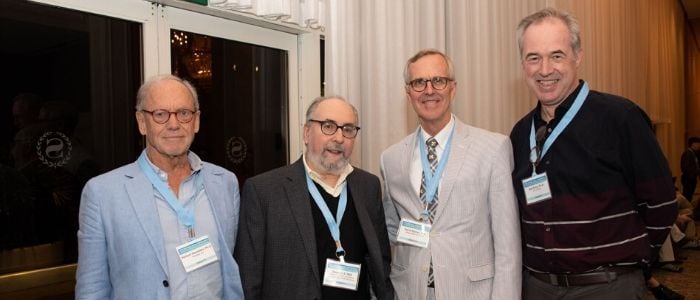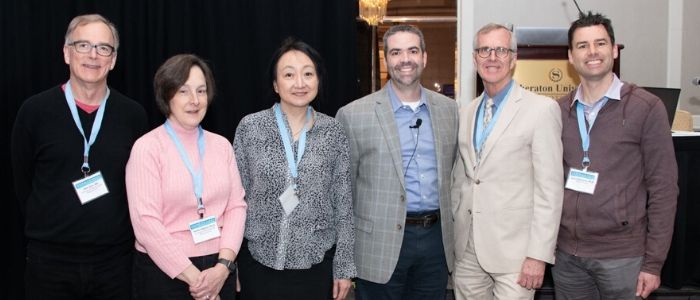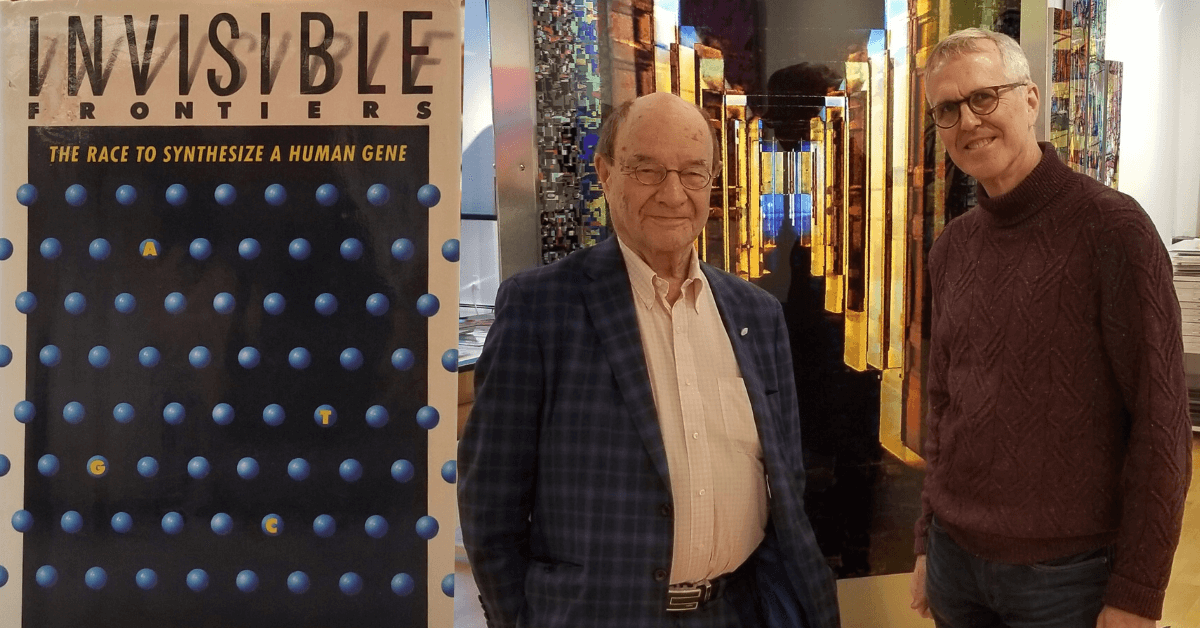David Harlan Interviews Nobel Laureate Wally Gilbert About Pioneering Work in DNA Sequencing That Led to the Creation of the First Genetically Engineered Human Insulin
Date Posted: martes, febrero 25, 2020
Dr. David Harlan was invited to deliver a plenary talk during the formal dinner at the 2020 Rachmiel Levine-Arthur Riggs Diabetes Research Symposium. The annual meeting is a gathering of the world's leading diabetes researchers. This year they celebrated the pioneering work in DNA sequencing that resulted in the 1980 Nobel Prize in Chemistry for Walter Gilbert, PhD. The session was titled Invisible Frontiers Revisited: Human Insulin 40 Years Later in reference to Stephen Hall's book Invisible Frontiers: The Race to Synthesize a Human Gene.
Dr. Harlan shared the following video of his recent interview with Dr. Gilbert about the impact of that era on modern medicine, the political and ethical debate that it caused, as well as advice to young scientists. It concludes with a tour of Dr. Gilbert's art studio in Boston. While he's world renowned for his work as a molecular biologist on genes and DNA, today his passion is creating artwork from his digital photography.
During his talk at the Riggs-Levine Symposium, Dr. Harlan spoke about the important role that diabetes research has played in medical history, resulting in four Nobel Prizes awarded to insulin-focused research. He closed by quoting Frederick Banting - “You must begin with an ideal, and end with an ideal.” During his Nobel lecture in 1923, Banting made it clear that “Insulin is not the cure.”
Dr. Harlan challenged everyone in attendance to not forget that ideal by adding, "We must all do what it takes to improve the lives of those living with diabetes as we strive to complete the job of ridding diabetes from humanity through research."
(Below) Dr. Harlan at the Riggs-Levine Diabetes Research Symposium with insulin research pioneers Bart Roep, PhD, City of Hope (right) and Herbert Heyneker, PhD, Molecular Geneticist at UCSF Medical Center (left). In the middle is author Stephen Hall who wrote Invisible Frontiers: The Race to Synthesize a Human Gene.

The UMass Diabetes Center of Excellence was well represented at the 2020 Rachmiel Levine-Arthur Riggs Diabetes Research Symposium. John Harris, PhD, presented about the lessons he’s learning from his vitiligo studies at UMass Chan Medical School, and their connection to type 1 diabetes pathogenesis. Jennifer Wang, PhD, spoke about her impressive rat model of autoimmune diabetes. DCOE scientists Sam Redick, David Blodgett and Alan Derr presented some of their research at the poster session.


